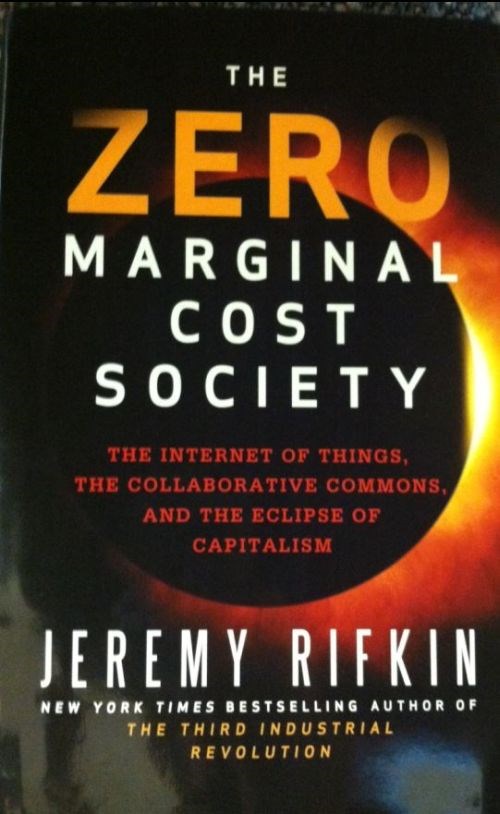A Whole Book about the Collaborative Commons
I find the concept of the Collaborative Commons both compelling and a bit disquieting. My recent column offered a few comments on this development as an alternative to the market-based economy that we take for granted. Author Jeremy Rifkin has written a book that explores this concept in great depth. It’s called "The Zero Marginal Cost Society."
Share






I find the concept of the Collaborative Commons both compelling and a bit disquieting. My recent column offered a few comments on this development as an alternative to the market-based economy that we take for granted. Author Jeremy Rifkin has written a book that explores this concept in great depth. It’s called The Zero Marginal Cost Society: The Internet of Things, the Collaborative Commons, and the Eclipse of Capitalism.
Mr. Rifkin’s office sent me a copy of his book, with a personal letter that included these paragraphs. Because they summarize the book so well (and match my impressions of the snatches I’ve been able to read so far), I quote them here:
“Mr. Rifkin believes that the Collaborative Commons is a critical part of a bigger story unfolding around the world that is going to fundamentally alter our global economy in the first half of the 21st century. He argues that a new economic system—the Collaborative Comments—is entering on to the world stage. It is the first new economic paradigm to take root since the advent of capitalism in the early nineteenth century. The meteoric rise of this new economic paradigm is coming at a time when capitalism is under great scrutiny, with lower growth, rising unemployment and greater inequality.
In his book, Mr. Rifkin describes a transformative new technology revolution—the Internet of Things—that enables billions of people to not only produce and share their music, videos, news, knowledge, and other virtual goods, but now also green electricity, 3D printed products, and other physical goods at near zero marginal cost, and for nearly free, on a vast global Collaborative Commons, bypassing the conventional marketplace. A younger generation is also beginning to share cars, dwellings, clothes, and countless other items and services at low or near zero marginal cost on the burgeoning Collaborative Commons, wreaking havoc on traditional industries and in the process, changing the very way we organize economic life.”
This book is available at Amazon.com.
























